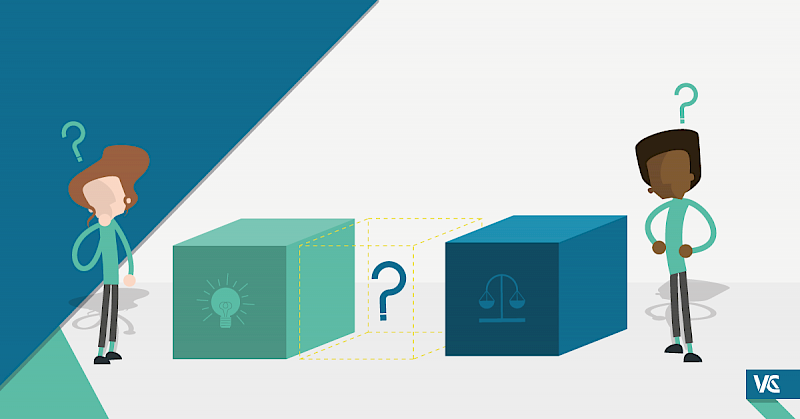What Legal Tech innovation is missing...
Recently I came across a blog which started with the question: "Does coding make you a better lawyer? The author of the blog argued it does make you a better lawyer because coding means applying systems thinking. This would make it easier to automate certain processes such as doing research (i.e. finding the important angles, perspectives or examples within large amounts of texts) and collecting and assembling case law. Indeed, this is where coding (the main part of ‘tech’ in legal tech innovation) will improve the legal process and thinking.
However, I also think it’s missing something, although I will not argue here that automating processes is a bad thing, not at all. Focusing on what coding could mean for the legal world will help making legal services and processes more efficient, maybe even more accurate. Take Blockchain technology for example. By decentralizing digitally the way that consensus is reached between different parties, we cannot just decrease the time to apply law, but also potentially have it be enforced across different borders. Blockchain technology could be a huge disruptor to the legal world, to an extent that it is unrecognizable from what it is now, if it would actually be applied on a large scale.
The thing that is really bothering me with technologies such as these, is that we are creating more systems and difficult-to-understand technology which don’t exactly make the gap between laymen and the legal world smaller, but in fact might even make it bigger. Combine legal systems together with coding systems and you get a black box of high complexity that could frighten people even more. Instead of explaining how the law works, this black box of complexity implicitly communicates it’s okay to not understand the law. This is a missed opportunity. Lawyers already aren’t exactly the easiest professionals to approach, to be honest, so let’s not make legal services even more scary or mindless with these technologies.
Rather let’s have a look at the core: Why does the law exist? The law is supposed to be understandable by every civilian to a certain extent, so that everyone is able to live in a society where conflicts are prevented or solved in a righteous way. Of course, this does not mean every word of law should or can be written in basic language that everybody can understand. So if that’s the case, how does legal language and legal services function to apply the law in an understandable and effective way? As we all know, hardly anyone reads terms and conditions or privacy statements before installing an app or subscribing for an online service. So instead of just focusing on automating processes to make it more efficient, we need to put effort into bridging the gap of accessibility in terms of understandability and maybe even desirability.
This is where a very important part of innovation within law should be addressed on, on a larger scale: the communication of legal topics or laws itself and the consequences of its use in society.
I acknowledge this is addressing a huge challenge, however, as the law is there to serve society to perform well, preventing conflicts or solving them in a righteous way, shouldn’t this type of accessibility be a high priority? It would mean that civilians can use it more often and better, on top of potential futuristic block-based (innovative) systems.
At Visual Contracts, this is exactly what we are addressing. On our platform we bring together lawyers and designers to search for new innovative solutions to make legal services, systems, applications and documents more accessible and understandable for laymen. Making those services more human friendly is what we strive for.
Again, I’m not stressing here that we should stop looking for solutions in coding and technological innovations, however, that being said, I do think it is very important to not forget about how humans will interact with the law, in all the different ways it is applied, whether this is in a Blockchain solution or just a ‘simple’ legal document such as a privacy statement.
So “Does coding make you a better lawyer?” I would say ‘Yes’, it does, but make sure you don’t lose your connection to the citizen or customer experiencing the law. Keep in mind not to put some already difficult content into a black box that makes it easier for people to avoid it or go ahead mindlessly. The law is really important to our lives, so let it function as it supposed to do: creating a human friendly livable society.
Lieke Beelen
Founder Visual Contracts

